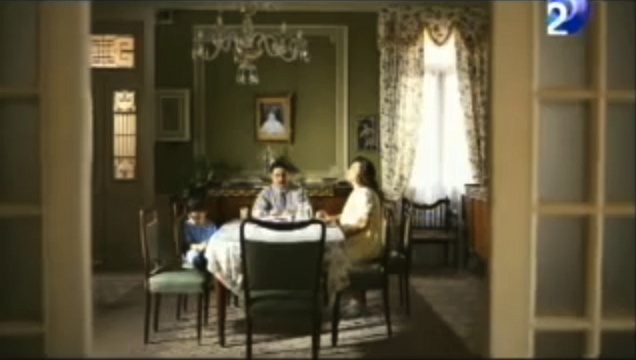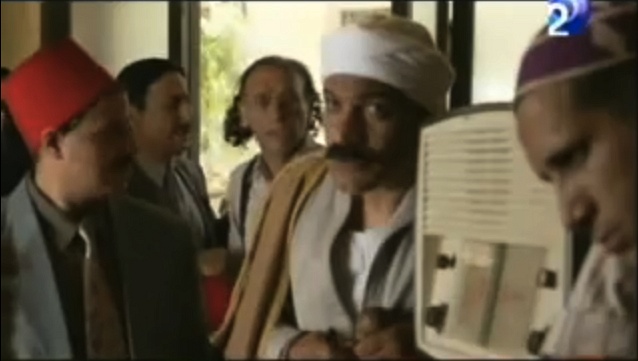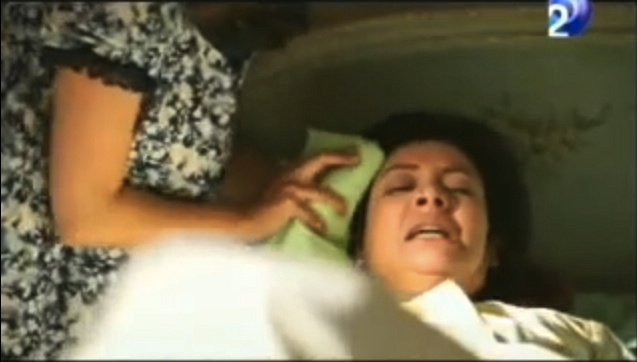What I Think About When I Think of Cairo, On This Date, Twenty-Nine Months After The _______. (Part II)
By
Yasmine El Rashidi
Prison literature has long occupied a significant place in the cultural imagination of the Arab world, serving at once as testimony—to the brutality of tyrannical regimes—as well as of the will to survive, and transform. The writers that have been molded from the experience of oppression and torture, and the literature that they then produced, have been as subversive as they have been compelling; from Syria to Iraq to the Maghreb and elsewhere.
In Egypt, Sonallah Ibrahim’s That Smell (1966) stands as a powerful example. Not just the novel itself, which uses a pared-down idiom to speak of the times, breaking the tradition of florid prose and irking censors and the political and literary establishments alike, but also the diaries that accompanied it. In Yawmiyat Al-Wahat—secret notebooks that Ibrahim kept and eventually copied onto Bafra cigarette papers that were smuggled out of prison—one comes face to face with the complicated, and often surprising, dynamic and influence of the rest of the world on a young Egyptian Marxist imprisoned in the middle of a desert.
In the diaries we are introduced to intellectual debates of the 1960s, to Soviet poets who were filling concert halls across Europe and America with their recitals and who are all but forgotten today. There are mentions of Yevgeny Yevtushenko, Sergei Eistenstein and Bertolt Brecht, Alexander Pushkin, Albert Camus, T.S. Eliot, and the interviews of The Paris Review. There are notes on psychological studies of creativity and deep-sea diving and surveys of sex and morality in America published in Time magazine. There are notes on dreams about his father and excerpts and thoughts on correspondences with his sister. There is a grappling with the political—with what revolutions meant to countries before his. There are glimpses into the world of international literature some fifty years ago, with its global connections of translation and the networks that existed in the most unexpected of places: an Egyptian prison in the middle of the desert. There, in the early 1960s, Ibrahim was tapping into a far-flung leftist community and keenly following its debates in Paris and Beirut and London, actively reading translations and reviews as his means—as a young writer—of finding his voice, his form, his method of making both a literary and political statement. In one June entry from 1962, quoting a review of the Twenty-Second Congress of the Communist Party of the Soviet Union, Ibrahim notes:
"Those writers who hurry to respond to the demands of the day, who apprise us of contemporary events, deserve the sobriquet ‘skimmer’. For them, the building of Volga Canal doesn’t merit more than two or three on-the-spot articles, dashed-off and superficial. A mirroring of events and nothing else. But the same subject cost Vladimir Fomenko ten years of hard work."1That Smell and Notes from Prison, Sonallah Ibrahim, translated by Robyn Creswell, New Directions, 2013, p.81.
And, in September 1963, “Anything that takes us beyond the limits of the conventional novel, now exhausted, is worth doing…” Later that month he asks himself, “Can I unify the personal with the objective in my writing? Set off in three directions at the same time: subject, style, and form.”
Read as an accompaniment to That Smell, which was banned before it had a chance to circulate, the diary entries offer background to a novel whose style, read in the context of the moment from which it was written, stands as something of a mystery; markedly different from the generation of Egyptian and Arab writers at the time. The answers come in entries on Hemingway, “Hemingway: A tight frame with three dimensions: Simple character. Simple style. Simple setting. In The Green Hills of Africa he talks about four-dimensional prose: the kind that hasn’t yet been written, but which is possible. There is a fourth and a fifth dimension (the symbolic?).”2That Smell and Notes from Prison, Sonallah Ibrahim, translated by Robyn Creswell, New Directions, 2013, p.90.
And, some months later:
"Virginia Woolf’s To The Lighthouse has opened up a new world for me… Her idea of art seems to be the same as that given in her novel by the painter: “One wanted, she thought, dipping her brush deliberately, to be on a level with ordinary experience, to feel simply that’s a chair, that’s a table, and yet at the same time, iIt’s a miracle, it’s an ecstasy.” This is what Woolf does in the novel, handling everything that is simple, ordinary, quotidian."3That Smell and Notes from Prison, Sonallah Ibrahim, translated by Robyn Creswell, New Directions, 2013, p.95.
To read That Smell today, in the aftermath of the Egyptian uprising, is to read a work that seems as pertinent to the present day as it was to 1966. To decipher between the lines of it is to read an entire history of a nation. Sonallah’s finger, as they say, is on the pulse, his pen telling of a story with a sweeping view of history and an uncanny sense of what is to come. And although he has not written of revolution—this one—Ibrahim has been among the most astute observers of the political situation as it has unfolded. In conversations—at dinner parties and public forums and in interviews—Ibrahim has anticipated that Egypt’s shift was to be one from secular, capitalist, Mubarakism, to conservative, capitalist, Islamism. He seems to have a grasp, currently but in much of his work as well, of both the present moment but also what is to come. In many ways, the turning point for Ibrahim—from a student and sometime journalist and activist to a writer of prominence and a pertinent voice in a nation of millions—was one marked by a period, under Nasser, of post-revolution euphoria now deflated and washed over by both dejection and a resistance to the new regime. A setting not unlike the one Egyptians live in today.
In the months after the uprising that began on 25 January 2011—and whose resistance, despite all its senses of loss and despair, continues today—there was a flurry of visiting writers and journalists and curators who landed in Egypt with projects in hand; seeking stories about change, about art and culture borne out revolution; looking for artists, for art, to fulfill their project mandates and proposals for exhibitions. They sought to capture a moment, to capitalize, and to interpret. I heard, repeatedly, the words “hope” and “freedom.” A state of hope. I received dozens of emails to that effect each day. It was, as one museum director wrote in an email to me some months later, “what we all hope to experience. By reaching out to you, it’s our way of trying to be a part of it.”
Now, some two years later, with the outcome of the “revolution” not quite what visitors, or even ourselves, might have hoped, interest has waned, and the questions I hear more often, are ones hinged on words such as failure, disappointment: “What went wrong?”
What went wrong?
As an Egyptian, a writer, who lived the revolution from the early morning of 25 January, when I marched the streets with friends, and ran as riot police came down on us with batons, and watched, as one of us—a friend—was grabbed by secret police and taken away to not resurface again for days, and persisted, despite the threat of knives and guns and the tear gas that blinded, the question that arises for me is not why we failed—for what is failure in a mere two-year cycle of history?—but, beyond the hype of street art and images of revolt and bearded men cast as Islamists, I wonder what this period will produce. Is the next Sonallah Ibrahim behind bars somewhere in a desert in Cairo, imprisoned under military trial, and persecuted by the current regime (which in many ways is still the former regime)? Are there legions of prisoners scrambling to get their hands on what reading material they can in the way Ibrahim and his cellmates did when the news spread that Naguib Mahfouz’s Trilogy had arrived at Al-Wahat? Are there diaries being written that will one day emerge?
Some weeks ago, a picture began circulating on Facebook and Twitter of the activist and blogger Alaa Abdel Fattah awaiting hearing with Mona Seif, his sister, in a courtroom in downtown Cairo. They are both smiling, determined, less concerned about the charges against them or the fairness of the trial or the bars they are behind since they understand, one imagines, that trials are never quite fair in Egypt and evidence is often fabricated and even if a sentence is handed down, they will eventually be released. And, anyway, it’s about the cause. As he waited, Alaa was pictured, in some of the images, with a book in hand, his face turned down, deep in his reading.
I couldn’t make out the book he was reading, and can’t figure out if it was linked to his tweets some weeks later about struggle and Marxism. I doubt that Alaa—a committed activist—will ever aspire to dedicate himself to writing in the way Ibrahim has, although who knows, but I do think of him and that image behind bars as he awaited trial and find myself thinking of Al-Wahat, and wondering what this period will yield. While many speak of the failure of the revolution to date, and the failure of the democratic process, I can’t help—despite my own sense of loss and disappointment—looking at the small signifiers of change that can only be tallied at a point far from now; the creative voices that have emerged—a chorus so loud it is a cacophony—out of which I believe one, two, maybe five or ten or fifty artists of the written word, the visual image, and the performative form will dedicate themselves to their (perhaps new-found) art or craft and hone their skills over the years. With time, in a moment that we perhaps won’t notice as it happens, they will become the new generation of the avant-garde. A state of hope, they said. To which I say, who knows what is being written today that will later reveal itself.


